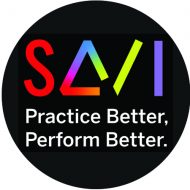Part III of my conversation with Joe Deer, co-author of Acting in Musical Theatre.
 Joe’s book has the well-deserved subtitle “A Comprehensive Course,” and he recently shared his comprehensive knowledge about the training of the singing actor at the Educational Theatre Association conference last weekend. Prior to that, though, he was kind enough to give me a preview of the presentation he would be giving high school teachers about preparing students for college theater auditions. If you missed them, here are links to the first and second parts of our interview. Now, on to Act III!
Joe’s book has the well-deserved subtitle “A Comprehensive Course,” and he recently shared his comprehensive knowledge about the training of the singing actor at the Educational Theatre Association conference last weekend. Prior to that, though, he was kind enough to give me a preview of the presentation he would be giving high school teachers about preparing students for college theater auditions. If you missed them, here are links to the first and second parts of our interview. Now, on to Act III!
It Matters To Everybody
The process of selecting a college and getting the right match between the school and the prospective student is as important to the school as it is to the student. Joe emphasized that schools nowadays go to considerable time, effort and expense to get the right mix of students; if the student’s goals and expectations aren’t well-matched to the school’s offerings, it’s bad for everybody. That’s why, if you’re a student, it’s so important for you to articulate your personal goals and pick schools based on how well their offerings match those goals.
Audition Requirements
Many schools, particularly those offering a BFA (Bachelor of Fine Arts) degree, require an audition, either live or on video; some require a video audition as a preliminary screening to the live audition. There’s no denying there’s a great deal at stake in these auditions, but following Joe’s advice will make the process less stressful and increase your likelihood of success.
Each school will provide information on their audition requirements: how many songs, how many monologues, what types of material and how long your audition cuts should be. Gather that information for every school you’re applying to. Some schools publish a “do not sing” list or a list of over-used audition monologues. Pay attention to guidelines like these; if the school went to the trouble of publishing them, then it “matters a lot to them,” Joe says. Monologues you are likely to need could include one or two contrasting contemporary pieces and perhaps a classical monolog (that is, one in verse or “elevated text”). You’ll also need two contrasting songs, but the specific guidelines (ballad? uptempo? classical? length of cut?) will vary from school to school. Your goal should be to come up with the minimum number of pieces that will satisfy every prospective school’s requirements; this will allow you to prepare your material efficiently and effectively. Whatever you do, start this process as early as possible, and don’t leave it til the last minute!
Choosing Good Material
Good audition pieces, both scenes and songs, allow you to “show yourself in your best light,” says Joe. Don’t choose material that will force you to go beyond the limits of what you feel you can do confidently. Your material should be appropriate for someone your age, and not so quirky in its characterization that it hides your personality from the auditors. Most importantly, choose pieces you actually care about, songs and monologues that “awaken an inner passion” and stir the artist in you. Auditors will regard your choice of material as a clue to your artistry, your curiosity and your passion.
The search for the perfect audition material is a challenge that singing actors face throughout their careers. The problem for most high school students is that your experience is limited – you haven’t read or seen that many plays or musicals. This is a place where a more experienced coach or teacher will probably be able to help, but expect to spend some time searching and digging if you want good results.
Homework and Preparation
Once you’ve chosen your material, you need to master it on the technical level. Learn the songs cold, both the text and the music. Practice reciting the text of your songs as a monolog, which is one of the simplest and most effective procedures for improving comprehension and memorization. “Technique should not be your focus in the audition,” says Joe; the auditors are interested in your ability to tell the story and to live truthfully in the imaginary circumstances of the story, he says, and that means practicing your material til the technical challenges of execution can take a backseat to your artistic expression.
Joe recommends that your homework include asking and answering what he calls “the basic acting questions” about your songs and monologues. Who am I? Who am I talking to and why do they matter to me? What are the important given circumstances? What I am fighting to make happen in this moment? What is my immediate need right now? What is my imaginary partner doing in response to that? Do your homework and the results will be evident in your behavior; skip it and that’ll show, too.
Certain kinds of practice can be especially helpful, Joe observes. Try delivering your audition material under stressful circumstances: in front of a class, in a recital or open-mic night. Get used to coping with the pressure of performance. Get someone to pretend to be your scene partner so you can speak and sing to a real person instead of an imaginary one; notice how this influences your behavior, and put those discoveries to use next time you’re alone.
Shall We Dance?
Many musical theater schools have a dance audition, and the preparation for this is different. Unlike the singing and acting, where you’re presenting material you’ve prepared previously, the dance audition requires you to learn new material (a “combination”) on the spot and then execute it in a way that demonstrates not only your skill and your personality but also your ability to “pick up” the choreography. If you’re an inexperienced dancer, there’s no way you can cram in enough classes in a short period of time to make yourself an expert; that kind of development takes time. You can, however, get yourself into classes and brush up your skills, so that you can confidently exhibit whatever dance ability you have.
Some time spent in the dance studio in the weeks before your audition will have the added advantage of enhancing your physical tone and vitality. You can do yourself a favor during these weeks by paying attention to how you eat, too; cut back on the soda and junk food, and load up on salads and whole foods if you want to feel and look your best.
Dress For Success
Check out the guidelines regarding how to dress for the dance audition, and suit up accordingly. You don’t have to be Baryshnikov to get into a musical theater program, though a high level of dance skills will give your standings a boost at many schools; you do, however, need to look like you have a clue about how dancers train, and show that you’re eager to do so. How you dress will make a difference in the acting and singing auditions too. Don’t dress like you’re going to Sunday dinner at Grandma’s, the prom or a job interview. Choose clothes that you feel you look good in, like you might wear on a first date – clothes that express your personality and show you respect yourself. Be prepared to change between your dance clothes and your acting clothes, and to do so quickly in a place that’s not very convenient, probably a bathroom.
Finally, you need to recall that, when you audition for a school, it’s as much a chance for you to check them out as it is for them to check you out. Take the time to talk to students or teachers who might be available while you’re hanging out waiting. Don’t be so caught up in the stress and drama of your preparation that you forget to breathe and look around. Think of it as a chance to let your light shine, I like to say, and I know Joe would agree with that.
Bonus links for further reading
There’s plenty of worthwhile material written on this subject, first and foremost among which is Chapter 18, “Auditioning,” in Acting in Musical Theatre, the book Joe co-authored with Rocco DalVera. Jonathan Flom’s Get The Callback: The Art of Auditioning for Musical Theater is well worth a read, and Amazon also offers several articles by Jonathan (who teaches at Shenandoah Conservatory) in Kindle format. VP Boyle’s Audition Freedom is a breath of fresh air that reminds us to be human in the audition room, and Mary Anna Dennard’s I Got In (2014 edition) bills itself as the Ultimate College Audition Guide for Acting and Musical Theater. Get reading!

Thanks for the nice article(s). You make me seem so bright! Great blog.